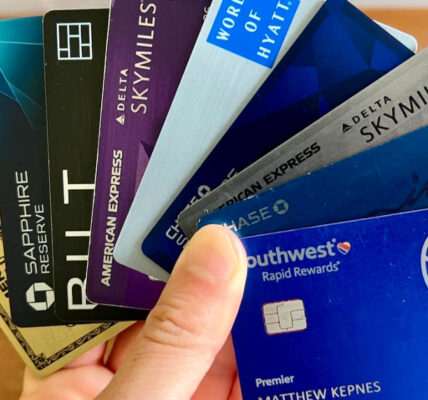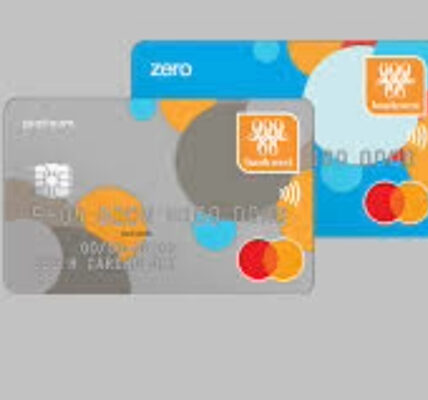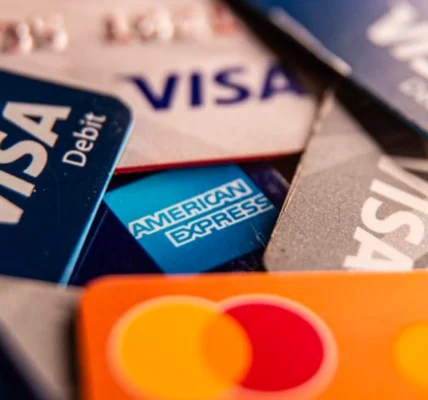Traveling with a credit card can be an excellent way to earn rewards, access travel perks, and simplify payments. However, making a few common mistakes can lead to costly consequences, potentially derailing your travel plans or leaving you with hefty fees. To ensure that you’re maximizing the benefits of your credit card while avoiding financial pitfalls, here are the top five credit card mistakes to avoid while traveling.
Key Takeaways
- Using a credit card while traveling offers great benefits, but it’s essential to avoid mistakes that can lead to unexpected costs.
- Always notify your bank of your travel plans, monitor exchange rates, and be aware of fees associated with foreign transactions.
- Choosing the wrong credit card for travel can result in missed rewards and increased costs.
1. Failing to Notify Your Bank About Your Travel Plans
The Mistake:
Many travelers forget to notify their bank or credit card issuer that they’ll be traveling abroad. As a result, your credit card might be flagged for suspicious activity when you make purchases in a foreign country, leading to a temporary block or freeze on your account.
The Cost:
A blocked card could leave you without access to funds, causing unnecessary stress during your trip. You might also experience delays while waiting for your bank to unblock the card, potentially disrupting your travel plans.
How to Avoid It:
Before leaving for your trip, contact your bank or credit card issuer and inform them of your travel dates and destinations. This will help ensure that your transactions are flagged as legitimate and that you have uninterrupted access to your funds. Many banks and credit card issuers offer easy ways to notify them of your travel plans through their apps or websites.
2. Not Using a Travel-Friendly Credit Card
The Mistake:
Using a credit card that doesn’t offer travel-specific benefits can cost you more than you expect. For example, some cards charge foreign transaction fees, while others don’t provide rewards for travel-related expenses.
The Cost:
Foreign transaction fees typically range from 1% to 3% of the purchase amount, which can quickly add up when you’re abroad. Additionally, if you’re not earning rewards on travel spending, you’re missing out on valuable points or miles that could have been redeemed for future travel.
How to Avoid It:
Choose a credit card that is designed for travel. Look for cards that don’t charge foreign transaction fees, offer travel rewards, and provide perks like trip cancellation insurance, airport lounge access, or rental car insurance. Some of the best travel cards include the Chase Sapphire Preferred®, the Capital One Venture Rewards Credit Card, and the Platinum Card® from American Express.
3. Ignoring Foreign Exchange Rates
The Mistake:
Many travelers don’t realize that credit card companies use their own exchange rates, which can differ from the official rates used by banks or currency exchanges. Additionally, some cards may charge a currency conversion fee, further increasing the cost of your purchases.
The Cost:
You may end up paying more than you expected for goods and services due to unfavorable exchange rates or hidden fees. Over the course of a trip, these extra costs can accumulate, making your travels more expensive than anticipated.
How to Avoid It:
To get the best value when spending abroad, choose a credit card that offers no foreign transaction fees and uses competitive exchange rates. Be sure to check your card issuer’s exchange rate policy before using your card internationally. Some credit cards, like the Chase Sapphire Preferred® and Capital One Venture Rewards Credit Card, offer favorable exchange rates and zero foreign transaction fees.
4. Carrying a High Balance or Racking Up Debt
The Mistake:
When traveling, it can be easy to overspend and rack up a credit card balance, especially when you’re enjoying activities like sightseeing, dining, and shopping. Carrying a high balance or failing to pay off your card in full can lead to high-interest charges and damage your credit score.
The Cost:
Credit cards typically charge high interest rates on any remaining balance, which can significantly increase the overall cost of your trip. If you don’t pay off your balance promptly, you could also accrue late fees and negatively impact your credit.
How to Avoid It:
Set a budget before your trip and stick to it. Use your credit card for necessary expenses, but be mindful of your spending to avoid accumulating debt. If you anticipate a higher-than-usual balance, consider paying off your credit card early or as you go to avoid interest charges. Always aim to pay off your balance in full to avoid unnecessary fees.
5. Not Taking Advantage of Travel Benefits and Perks
The Mistake:
Many travelers fail to take full advantage of the travel benefits their credit card offers, such as trip insurance, airport lounge access, or extended warranties. These perks can make your trip smoother and more enjoyable, but they’re often overlooked.
The Cost:
By not utilizing the travel perks available to you, you miss out on opportunities to enhance your experience or save money. For example, airport lounge access can provide you with a comfortable space to relax and free food and drinks before your flight. Trip insurance can also save you money if your plans are interrupted due to unforeseen circumstances.
How to Avoid It:
Before you travel, familiarize yourself with the benefits your credit card offers. Look for perks like travel insurance, priority boarding, rental car insurance, baggage protection, and airport lounge access. Make sure to keep a copy of your card’s benefits and contact information for easy access while on the go. If you’re not sure about your card’s perks, call your credit card issuer to ask about available travel-related benefits.
Conclusion
Traveling with a credit card can provide great rewards and convenience, but it’s essential to be mindful of potential pitfalls. By avoiding these five costly credit card mistakes—informing your bank of your travel plans, choosing the right travel-friendly card, understanding exchange rates, managing your balance, and taking advantage of travel perks—you can make your travels more enjoyable and cost-effective. Keep these tips in mind, and you’ll be better prepared to make the most of your credit card while traveling.




